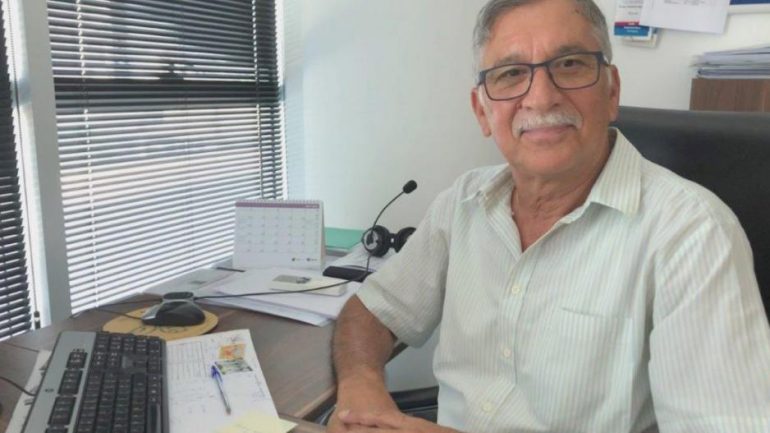Dr. Petros Karagiannis, a member of the Advisory Scientific Committee, Professor of Microbiology / Molecular Virology at the Medical School of the University of Nicosia, described the detection of 705 new cases of coronavirus in Cyprus as an unexpected event on Friday. At the same time he noted that vaccination coverage should proceed and there should be no hesitation about the AstraZeneca vaccine.
In his statements to KYPE, he said that they do not know exactly what may be the reason for this fact and despite the increased number of tests, this increase is not explained even proportionally. On Friday, 705 new cases were identified after 59.144 disease detection tests.
Dr. Karagiannis pointed out that there were only 34 cases in education, however there was a very high number of positive results through the tracking of the contacts of the already confirmed cases. As he said, almost 1/5 of the samples from the traces were positive. He expressed the hope that this big increase will not be something permanent, although as he said it is expected that there will be some increase with further relaxations. She also said that she could not say how her situation would develop in the coming days.
Asked about the high percentage found in the traces and whether there were some people who acted as super-transmitters, Mr. Karagiannis said that they know that some who are positive do not limit themselves and circulate and reminded that the Ministry of Health issued a recent announcement.
"Unfortunately there are those people who do not understand the danger they are putting the whole country in," he said, adding that it is difficult to control the situation when it escapes.
Regarding the measures that may follow, Dr. Karagiannis said that the current relaxations will be valid until the end of the month, although the Minister left a window that some re-evaluation would take place maybe towards the end of the month.
"It will be done but it may not open the window for further relaxation," he said. He added that if the situation worsens significantly, of course there will be a reassessment and further restrictions.
He noted that we have not yet come out of the difficult position, there is the mutated strain and it needs attention.
There should be no hesitation about the AstraZeneca vaccine
Regarding the course of vaccinations in Cyprus, he noted that the results are already visible in the elderly, since at the moment there is no problem in nursing homes and the elderly who have been vaccinated. The deaths of elderly people recorded, he said, concern people who have not been vaccinated.
"Vaccination coverage must therefore proceed. "We believe that 30-35% will act as a deterrent, but what countries want to do is reach about 70% so that there is a very noticeable drop in the number of cases," he said.
Asked whether he thinks that in Cyprus we are moving slowly with the vaccinations, Mr. Karagiannis said that we are moving forward according to the doses we have.
Regarding the skepticism that exists around the AstraZeneca vaccine, Mr. Karagiannis stated that he does not understand why there is this confusion, even from large countries.
"First they said they would not vaccinate people over 65, now Germany, the Netherlands and Canada have changed it and said they will not vaccinate those under 65. These are decisions that confuse people, they give this wrong message. "At the moment we want people to be vaccinated," he said.
At the same time, he added, we know from England that 17 million were vaccinated that there were only 5 people with serious side effects and no one died. He added that if one took 30 million from a population of unvaccinated, there might be the same number of cases that are due to nature and not to the vaccine. He added that even if such an incident occurs after vaccination it can be treated
He noted that people should not be hesitant about the AstraZeneca vaccine, on the contrary.
He referred to the case of diabetics who did not go to be vaccinated because they heard all these things and in the end out of the 17,500 vaccines only 7,500 were made available to this vulnerable group. Now those who did not get the vaccine will have to wait until their age group arrives, he added, so they put themselves at risk until they decide and if they decide to get the vaccine later.
He clarified that the vaccines that were not received by the specific vulnerable group, were immediately available for the 64-year-olds.
